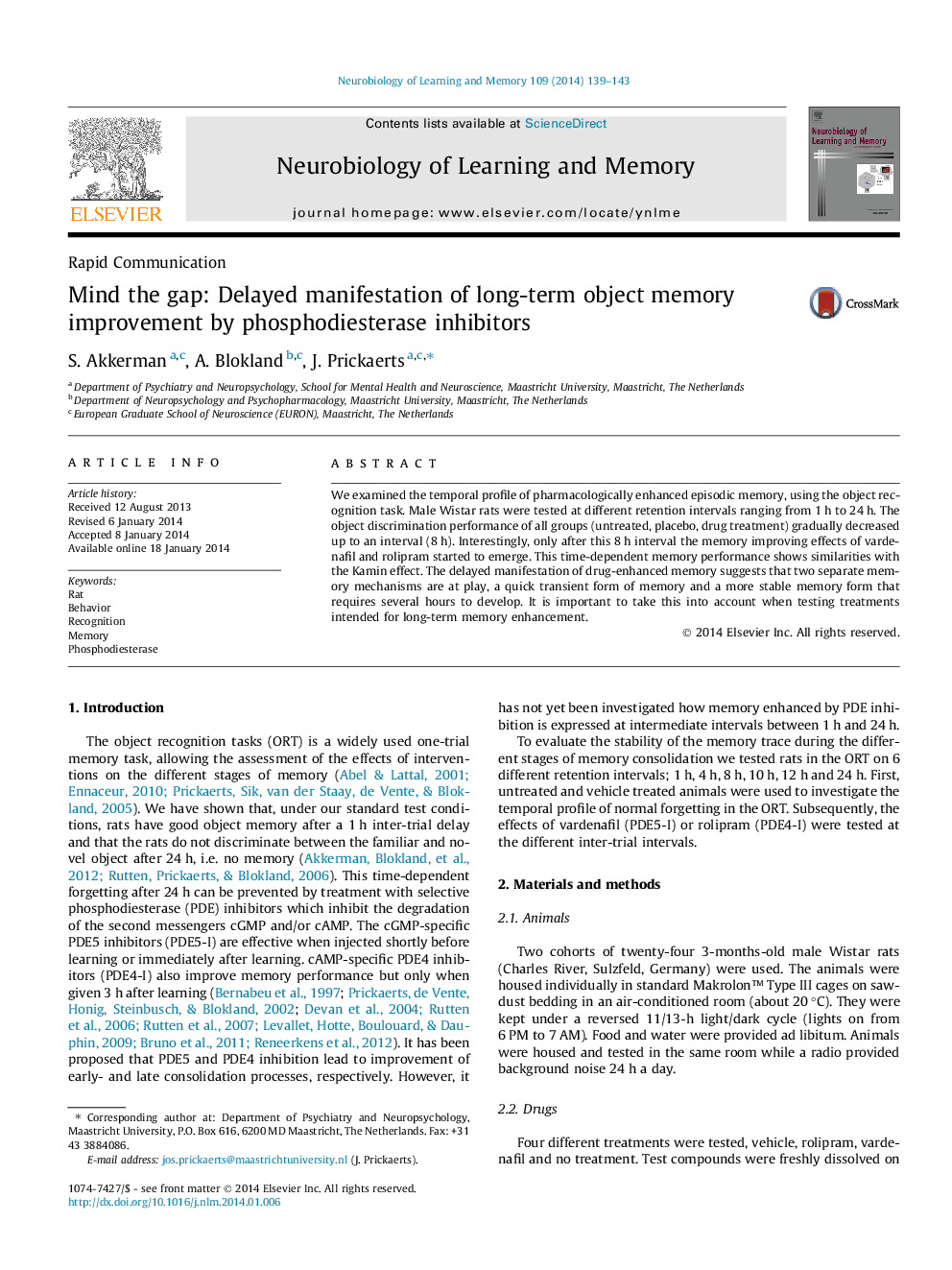| Article ID | Journal | Published Year | Pages | File Type |
|---|---|---|---|---|
| 7300427 | Neurobiology of Learning and Memory | 2014 | 5 Pages |
Abstract
We examined the temporal profile of pharmacologically enhanced episodic memory, using the object recognition task. Male Wistar rats were tested at different retention intervals ranging from 1Â h to 24Â h. The object discrimination performance of all groups (untreated, placebo, drug treatment) gradually decreased up to an interval (8Â h). Interestingly, only after this 8Â h interval the memory improving effects of vardenafil and rolipram started to emerge. This time-dependent memory performance shows similarities with the Kamin effect. The delayed manifestation of drug-enhanced memory suggests that two separate memory mechanisms are at play, a quick transient form of memory and a more stable memory form that requires several hours to develop. It is important to take this into account when testing treatments intended for long-term memory enhancement.
Related Topics
Life Sciences
Neuroscience
Behavioral Neuroscience
Authors
S. Akkerman, A. Blokland, J. Prickaerts,
